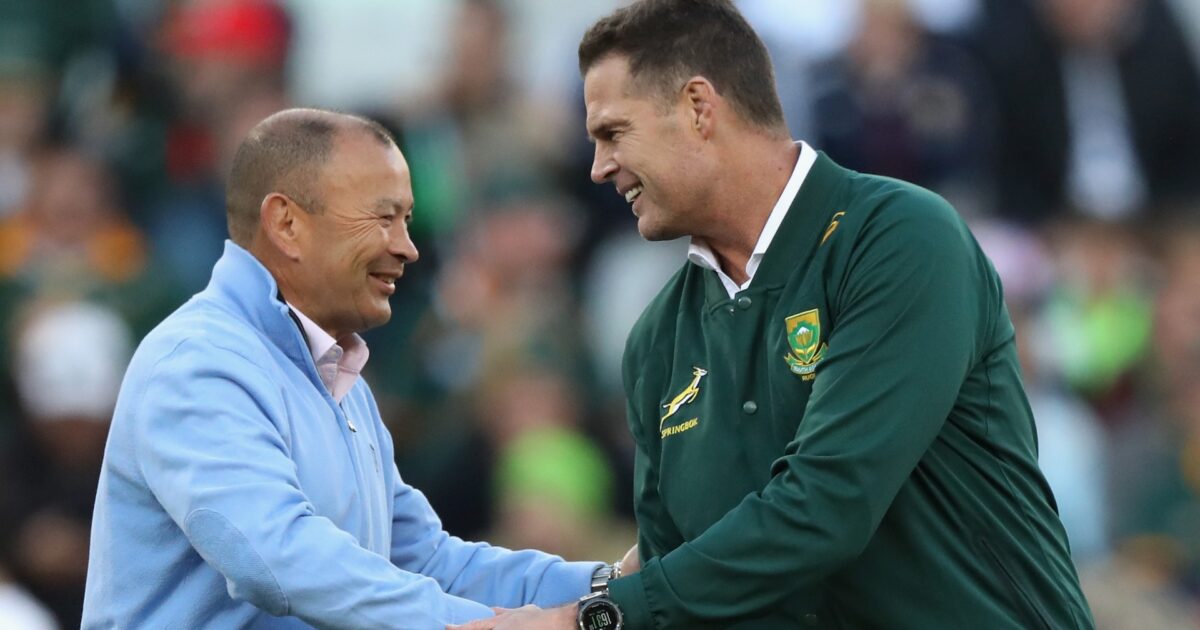Erasmus, Jones head roster of leading names appointed to a dozen interim World Rugby committees

Rassie Erasmus, Eddie Jones Melodie Robinson, Conrad Smith and Bryan Habana are among a host of leading players and coaches who have been appointed to World Rugby interim committees. Building on an agreement between the international federation and International Rugby Players (IRP), each of the dozen committees will feature player representation nominated by IRP.
A statement read: “With the core objective of contributing to the decision-making process, the player representatives will combine extensive rugby experience with relevant expertise, including broadcast, digital media, welfare, medical, commercial and legal business backgrounds.
“Every committee features a broader nation, female and independent representation with 30 per cent of all committee members women and three committees chaired by female council members. The interim committees met for the first time earlier this month for inductions, updates and to start the business of guiding World Rugby’s decision-making process.”
Erasmus and Steve Hansen join Jones, Fabien Galthie, Mario Ledesma, Gregor Townsend, Lesley McKenzie and David Nucifora as coaching representatives on the new high performance 15s committee.
World Cup winners Habana, Smith and Rachael Burford along with Wales’ Jamie Roberts and Canada’s Araba Chintoh have been appointed as player representatives with medical expertise on the same committee.
Back in the game https://t.co/FVP5kqkIYT
— RugbyPass (@RugbyPass) October 8, 2020
Appointments across the committees include former Ireland captain and broadcaster Brian O’Driscoll and New Zealand’s two-time World Cup winner, sports journalist and presenter Robinson, who join the Rugby World Cup board, while England’s Deborah Griffin, independent and fan-engagement expert Angela Ruggiero and former All Blacks and Black Ferns team doctor Deb Robinson will each chair committees.
SA Rugby director of rugby Erasmus said: “It’s a privilege to be involved at such a level with key rugby influencers. The committee performs a very important strategic function, with an influential impact on key functions such as shaping the laws of the game, player welfare, and the global competition matters.
“I’m looking forward to working with the committee members as they continue to influence and improve the competitiveness of international rugby.”
England head coach Jones added: “I’m pleased to be joining the World Rugby high performance committee. I love rugby and think it’s important to give back to the game as I want to play a part in helping it to grow. I’m looking forward to working alongside the other coaches and players on the committee, sharing knowledge and ideas and contributing to a better game.”
These committees have been announced in advance the November publication of the findings in the World Rugby governance review led by British Olympic committee chairman and former UK Olympics and sports Minister, Hugh Robertson.
The Kiwis have been teaching Eddie a thing or two https://t.co/gL9TXKs58e
— RugbyPass (@RugbyPass) October 6, 2020










































































